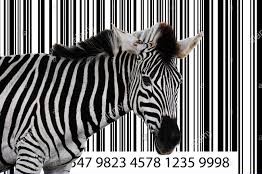What You Need To Know About Amazon’s UPC Code Policy
Any company that wants to find success selling products online needs to make an important decision at some point. Should the company try selling its products on its own website, making it potentially harder for people to find them? Or should it sell products on a large marketplace like Amazon, despite the extra competition?
It’s hard to beat the built-in shopper base that Amazon has when you’re trying to sell as much as possible. It’s why so many companies, big and small, decide to post their products on Amazon’s marketplace and find success.
It’s important to remember that Amazon’s marketplace isn’t a free-for-all, and you’ll need to make the right preparations before you can post anything up on the site. Specifically, you’ll need every one of your products to have its own UPC code so that Amazon can find, categorize, and sell it quickly. Not just any UPC code will do, however. Below we’ll go through what you need to know about Amazon’s UPC code policy so you can make sure you’re prepared to start selling your products on the platform.
What you need to know about Amazon’s UPC code policy
Each Product Must Have a Unique UPC Code
Think about the sheer number of products that Amazon sells on its marketplace. The number is truly staggering to consider; it’s even more daunting when you think about how Amazon has to categorize and identify every single unique product in one way or another. They can do this because Amazon, like most other retailers, requires that every product has a completely unique UPC barcode for identification.
As you’ll see later, there are ways to reuse UPC barcodes that have previously been registered, but those won’t work on Amazon. Every single one of your products needs its own unique UPC code to separate it from the thousands upon thousands of other products on the marketplace.
Each Product Variation Also Needs Its Own UPC Code
To go one step further, not only does every product need its own UPC code, but every single variation on that product needs its own unique UPC code as well.
The easiest way to understand this concept is to consider a company that sells clothing, specifically shirts. If this company sells a T-shirt, a long sleeve shirt, and a tank top, you might think they only need three UPC codes. One UPC code for each specific kind of shirt. However, if that company sells those shirts in different colors or even different fabrics, they will need more than that. If each of those three kinds of shirts comes in three different colors, the company will need a total of nine unique barcodes for each variation.
UPC Codes Must Be in GS1
Global Standards 1, commonly called GS1, is an organization that creates and stores UPC codes while providing identifiers for companies as well. The GS1 is an industry-trusted organization for reliable UPC codes, and Amazon requires your UPC codes to be part of GS1 if you want to sell anything through its website.
There are methods out there that will allow you to attain UPC codes without having them or your company registered by GS1, but you want to avoid these if you plan on selling anything on Amazon. Without recognition by GS1, it’s against Amazon’s policy to post anything you want to sell on its marketplace.
All Codes Require a Company Prefix
Part of the reason that GS1 is so important is because of the unique company prefix that they can assign to you, and by extension, to your UPC barcodes. The GS1 will assign your company a prefix that will be at the beginning of any registered UPC codes you have with them.
Amazon needs to make sure that you have this company prefix so they can know that you’re a legitimate company. This will also make it possible to quickly identify that someone has bought products from your specific company, as opposed to other products on the marketplace.
Reused UPC Codes Will Not Work
We’ve mentioned it a few times already, but one of the most important things to know about Amazon’s UPC code policy is that it forbids the use of resold UPC codes. When you decide that you want to sell products on Amazon’s marketplace, you’ll often see advice online that says you can buy cheap UPC codes on places like eBay. This is a trap you want to avoid.
Not only are you opening yourself up to scams that could leave you without any kind of usable barcode, but even if they are real and unused, they don’t have your unique company prefix. This prevents you from using these UPC codes on Amazon because they aren’t properly identifying you or your company. To avoid this pitfall, you should only buy UPC for Amazon from reputable sellers like Buyabarcode.com.
Using Manufacturer’s UPC Code for Brand Products
It’s not that odd for many companies to sell products that aren’t from their own brand on Amazon. If you plan on doing this yourself, you cannot add your own UPC code to a product that doesn’t wholly belong to you.
Listing a branded product from a brand that isn’t yours requires you to use the brand’s UPC code rather than your own. Do not try attaching a UPC code on a product that already has one, as this could land you in some serious trouble. Contact the original manufacturer to get the UPC code that is already assigned to that product.
Bundles Need Unique Codes
Something that many companies do on Amazon is bundle certain products together to make it easier for customers to get everything they need. Bundles can be very beneficial to both customers and the companies selling them, but they also have their own UPC code restrictions.
Amazon requires that product bundles use its own unique UPC codes. It’s crucial to add that this code cannot be from one of the products in the bundle. It must be a wholly separate UPC code that only applies to that specific bundle of items.
With this knowledge about Amazon’s UPC code policies in hand, you can start acquiring the UPC codes you need to start selling on the biggest marketplace around. Buyabarcode.com offers a fast and efficient way to get all the UPC codes you need to start selling your products today!





